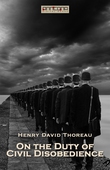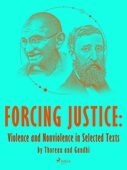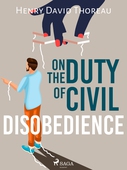
Lägg till önskelistan
Walking e-bok
Pris
45 kr
‘Walking’ (1851) is an essay by American naturalist, poet, essayist and philosopher, Henry David Thoreau, best known for his book ‘Walden’ (1854).
This pioneering work is one of Thoreau’s most famous essays and lauds the merits of immersing yourself in nature while it bemoans the inevitable invasion of private ownership upon nature and the wild.
Extolling the virtues of long afternoon walks, the soothing nature of time spent in the countryside and the lure of the wild for artists and writer...
E-Bok
45 kr
Pris
Förlag
Saga Egmont
Utgiven
2 Maj 2023
Längd
60 sidor
Genrer
Naturvetenskap & Teknik, Essäer, Fackböcker, Skönlitteratur
Språk
English
Format
epub
Kopieringsskydd
Vattenmärkt
ISBN
9788728448786
‘Walking’ (1851) is an essay by American naturalist, poet, essayist and philosopher, Henry David Thoreau, best known for his book ‘Walden’ (1854).
This pioneering work is one of Thoreau’s most famous essays and lauds the merits of immersing yourself in nature while it bemoans the inevitable invasion of private ownership upon nature and the wild.
Extolling the virtues of long afternoon walks, the soothing nature of time spent in the countryside and the lure of the wild for artists and writers, this insightful work will delight readers looking to expand their minds on the necessity of walks in nature.
Henry David Thoreau (1817 – 1862) was an American naturalist, poet, essayist and philosopher. A leading transcendentalist, he is best known for his book ‘Walden’ (1854), a deliberation on simple living in natural surroundings, and his advocation of civil liberties in the essay ‘Civil Disobedience’ (1849).
A lifelong abolitionist, he praised the writings of Wendell Phillips and defended the abolitionist John Brown, most notably with his works ‘A Plea for Captain John Brown’ (1859), ‘Remarks After the Hanging of John Brown’ (1859), and ‘The Last Days of John Brown (1860)’.
Thoreau's philosophy of civil disobedience went on to influence writers and leading political figures across the world, including Tolstoy, Gandhi, and Martin Luther King Jr.
EPUB3: Reflowable









